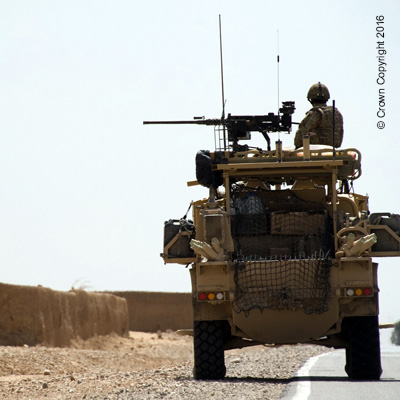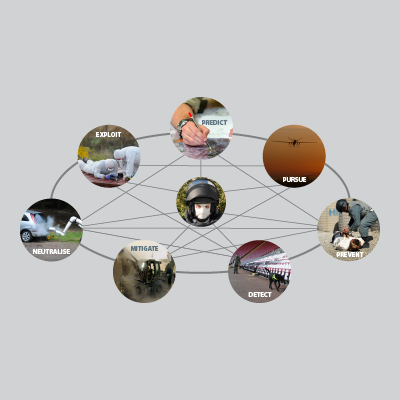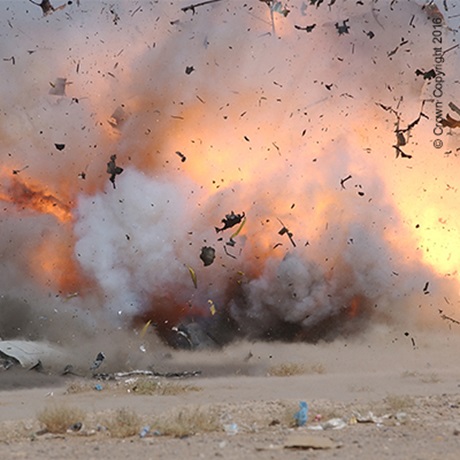For cases where a structure includes an opening from which an outside shock wave can penetrate (such as open doors, windows etc), UFC 3-340-02 provides a method to calculate the interior 'leaked' pressure for simple cases. A significant discrepancy in results was observed between leaked pressure values obtained by UFC 3-340-02 and those calculated by recognised fluid dynamic computer codes.
Contrary to the popular belief that the UFC was written following 'extensive' research efforts, exploring the origins of the UFC methodology for leaked pressures reveals that it is based on a theoretical and heavily caveated report from the 1970s. Its analysis is based on a scarce number of historical tests simulating an atomic explosion with a large pulse duration and then applying its results for short pulse, high explosive charges.
In this talk, we will discuss the interim results found following completion of more than 400 different simulations, in an effort to produce a more realistic calculation model. The work, once complete, will result in significant savings in mitigation costs of interior safe rooms as the correct reduced loads will be properly calculated.
The Terrorism Risk Assessment, Modelling and Mitigation Seminar Series (TRAMMSS) is a virtual seminar series focused on technical topics related to terrorism risk assessment, and modelling, including blast modelling and response; IEDs; vehicles as weapons; CBRN; big data for risk assessment, security and screening; and associated mitigation measures.
Speakers
Alex Eytan has more than 20 years of practical experience in the design of protective structures and systems. Following 9/11 he was managing Israel military trilateral joint research programmes with US and UK government agencies into deployable protective solutions from blast effects. He has led designs of US DoD and DoS facilities in Iraq and Afghanistan before setting up his own consultancy practice.
In recent years Alex has completed numerous risk and damage assessments of embassies, government buildings, corporate headquarters, data centres, airports and VIP residences, and has designed multiple ballistic protective solutions to counter terrorist forces in the UK, Europe and the Far East.
Alex is currently completing his MSc at Cranfield Defence and Security.
Who should attend
This seminar is open to guests from outside Cranfield, who may work in academia, research, or industry. Due to the potentially sensitive nature of this seminar series, guests should be able to show that they are affiliated with an appropriate bona fide organisation.
Cost
The event is free of charge, but participants must register for the TRAMMSS mailing list in advance.How to register
To attend this seminar, you must register for the TRAMMSS mailing list via the online form. Further information on the TRAMMSS community can be found on the main website.






